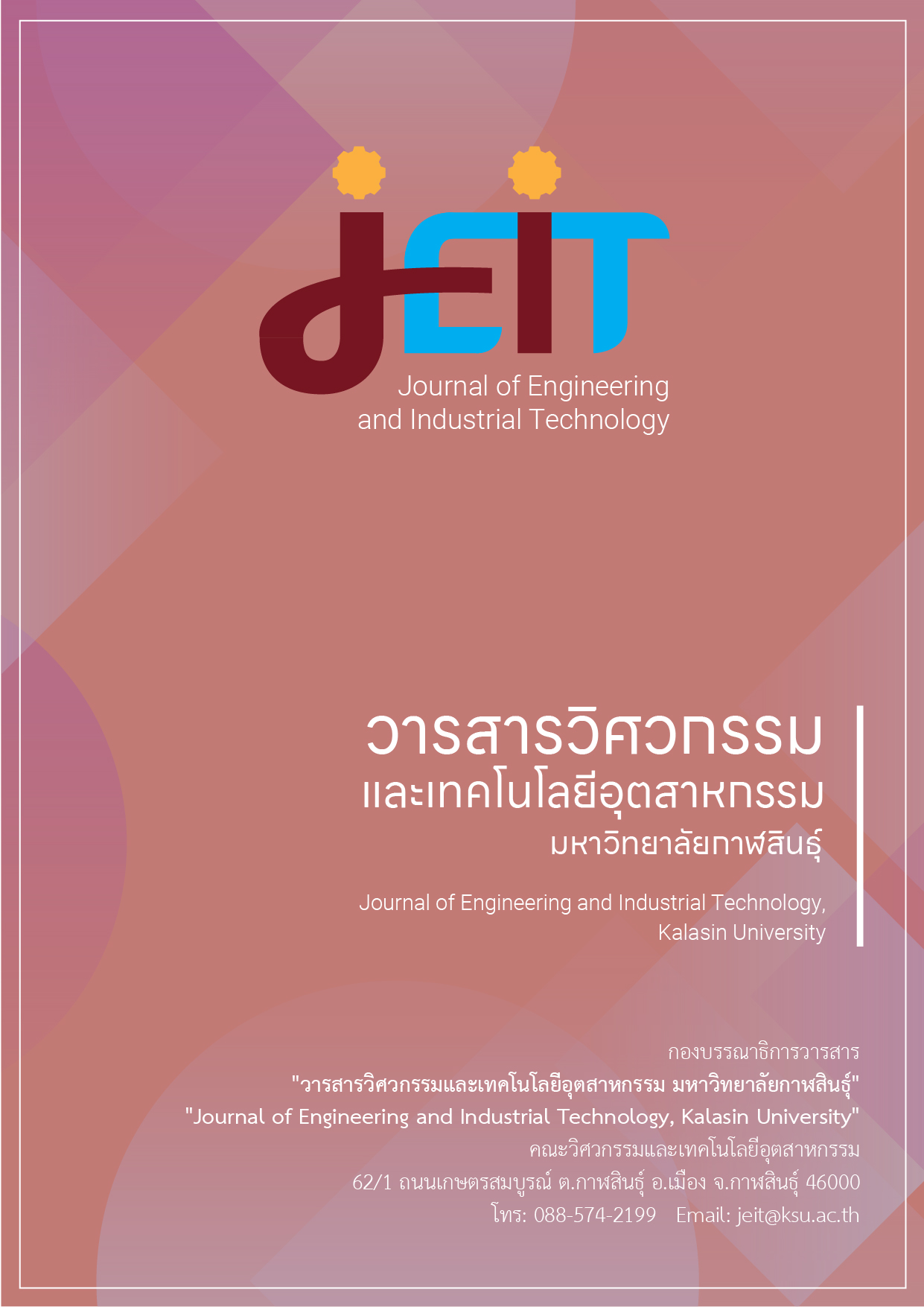
Ethics
Publication Ethics
The purpose of the "Journal of Engineering and Industrial Technology, Kalasin University" is to promote and publish research works in engineering and architecture, as well as new findings or new information, between researchers and the general public. In addition, it aims to establish academic communication that is accurate, of high quality, transparent, and complies with publication requirements.
Responsibilities for interested parties in the Journal of Engineering and Industrial Technology, Kalasin University include three categories, namely authors, editors, and reviewers, who are required to adhere to the regulations outlined in the following section.
Duties of Authors
1.Authors must acquire consent from co-authors, if any, before submitting an article.
2.In all instances, authors are responsible for the original article's copyright.
- Writers whose names appear on the manuscript must actively participate in the research process.
4.Authors are required to attest that their manuscript is original and has not been published elsewhere.
- Writers must accurately disclose their study without fabrication, falsification, or data manipulation.
- Writers must conduct a comprehensive review of their work to verify that all aspects of the paper to be published in the journal are accurate and adhere to international ethical standards.
- Writers must accept criticism and can react with further information, if necessary.
Writers are required to cite the works of other authors. If such works are utilized in the authors' work, a reference must be written according to the citing style guidance in "Manuscript Preparation."
9.Authors must format their manuscripts according to the "Manuscript Preparation" format guide.
Duties of Editors
1.Editors are responsible for reviewing a manuscript's quality prior to its publication in a journal.
2.Editors must undertake all jobs meticulously to ensure the quality of a published paper, taking in mind the journal's clearly established objectives and criteria.
3.Editors must justify or provide any information pertinent to peer review processes and be prepared to defend any potential departure from peer review procedures.
4.Editors must conduct and fulfill all journal duties within the specified publication window.
5.Editors must determine whether or not to publish a work.
6.Editors must permit writers to file an appeal if they hold differing ideas than editors.
7.Editors shall not reveal any information on authors and reviewers to parties not engaged in the evaluation of the work in any way.
8.Editors may not reject a work for publication based merely on their suspicions or doubts; they must provide solid evidence to support their suspicions.
9.Editors may not overturn a previously rejected paper's acceptance decision.
10.Editors must examine a document for instances of plagiarism.
11.In the case of a change in editors, the newly appointed editors shall not overturn a decision to accept a paper that was previously rejected by the prior editors, unless it can be demonstrated clearly and suitably.
12.Should editors discover plagiarism of other works during the review process, they must immediately pause the evaluation process and contact the authors to request clarification or a rationale for the approval or rejection of the article.
13.Editors are prohibited from publishing previously published articles.
14.Editors must have a management structure that does not clash with the interests of authors, reviewers, or the editorial board.
15.Editors must encourage free speech, ensure the accuracy of academic works, and safeguard intellectual property rules.
Duties of Reviewers
1.Reviewers must have access to a personal information protection system, with the exception of open evaluations of which authors and reviewers have been told in advance.
2.Reviewers must have access to a system that protects the confidentiality of submitted papers during the assessment process.
3.During the assessment process, reviewers must maintain confidentiality and not divulge any information about a submitted manuscript to uninvolved individuals.
4.Upon receiving a paper from editors, if reviewers discover that they have a conflict of interest with the authors, such as participating in a project with them or being acquainted with them, or for any other reason that could compromise their impartiality or objectivity, they should notify editors and refuse to evaluate the paper.
5.Reviewers must have a comprehensive understanding of suggestions in all areas requested by editors, as well as adjustments to recommendations that can link or connect to such rules.
6.Reviewers must assess a paper in their area of expertise based on the relevance of its content, the quality of its analysis, and the breadth of the work itself.
7.Reviewers shall not assess a work on the basis of their subjective judgments in the absence of evidence-based criteria.
8.Reviewers must notify editors if they discover that any portion of a manuscript is identical to or overlaps with other publications.
